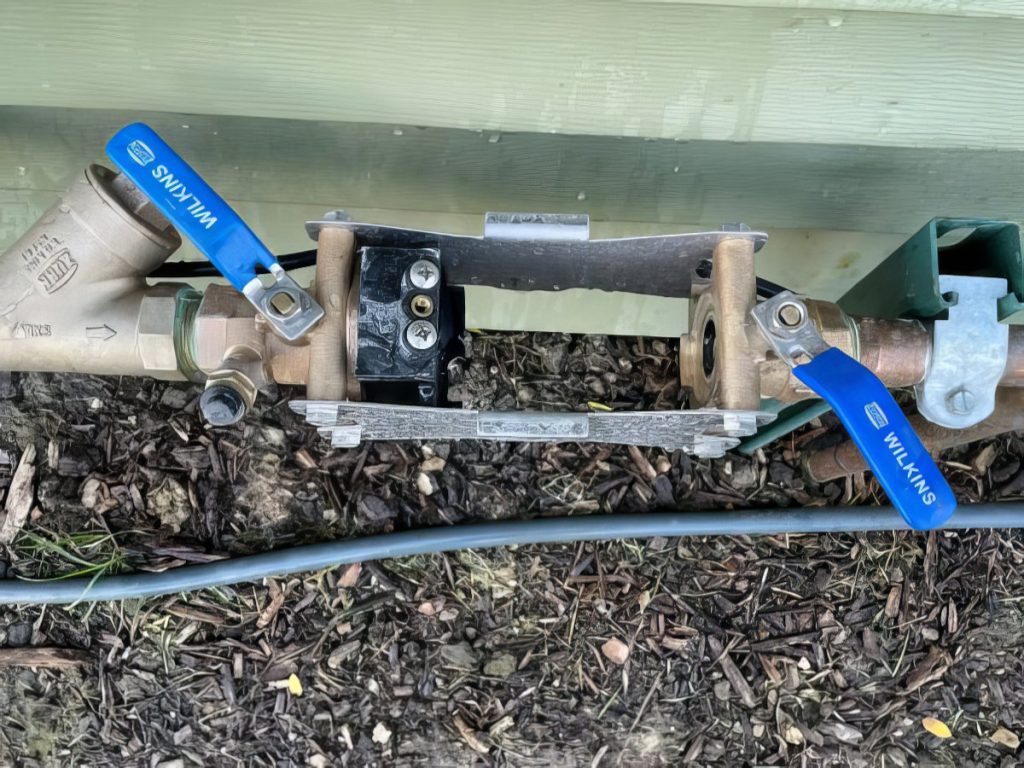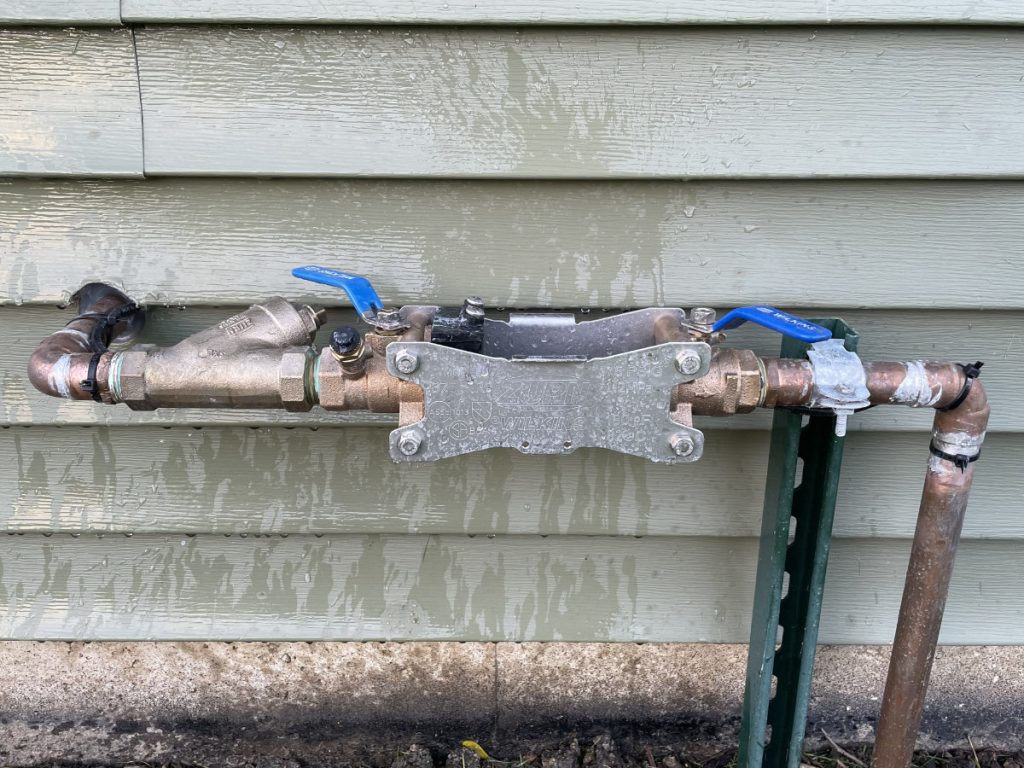Drainage Resources
Backflow Resources
Sprinkler Resources
Startup/Shutdown Instructions for AUTO-RAIN Lawn Sprinkler Systems installed from 2017-Present
- OUTDOOR RPZ Startup/Shutdown Self-Drain Instructions
- INDOOR RPZ Startup/Shutdown Self-Drain Instructions


Lawn Sprinklers. Any lawn sprinkler system connected to a potable water supply shall be equipped with an RPZ. The RPZ may be located outside provided that it is protected from freezing or is removed at the end of the season, and it complies with Section 890.1130(g)(1).
( idph.state.il.us )
The Illinois Plumbing Code, 77 Ill. Adm. Code 890.1140(d) specifically requires that a reduced pressure principle backflow preventer assembly (RPZ) be installed on all lawn sprinkler systems to protect the potable water supply. This is a retroactive requirement due to health hazard concerns, as there have been recent documented cases of nematodes (which frequently thrive in lawn sprinkler systems) being drawn into home and neighboring plumbing. Thus, the possibility of nematode contamination, entry of fecal coliform or other microbiological contaminants due to pet or animal waste deposited on or near sprinkler heads, and possible chemigation practices (application of pesticides, weed killers, or fertilizers in proximity to or through lawn sprinkler systems), make this connection to the potable water supply system a high hazard.
Both Agency regulations, 35 Ill. Adm. Code 653.802(e)(1). and the Plumbing Code, 77 Ill. Adm. Code 890.1130, require testing of the backflow assembly at the time of installation and at least annually thereafter. RPZs cannot be installed in a pit, as they are subject to flooding. If left connected to the system through winter months, the assembly must be protected against freezing. A HotBox or HydroCowl decorative rock can be used when aesthetics are important.
Many lawn sprinkler owners remove the assembly in the fall when the system is blown out to prepare it for winter. The assembly is stored in a heated basement or garage. When the system is serviced and put back into use in the spring, the RPZ assembly is installed, tested and ready for another summer season. The recent Lawn Sprinkler Contractor Registration program does not impact the need to include lawn sprinkler systems in the water utility cross-connection program inventory of cross-connections. This registration program does not include a test of competency, nor does it allow the registered party to make determinations in conflict with Illinois EPA or Illinois Department of Public Health requirements. Water purveyors should continue to include lawn sprinkler systems as a potential hazard to the quality of drinking water in the public water distribution system, and should continue to require that annual testing be performed each spring, with a copy of the test results placed on file with the water company.
(Wilkins 375 RPZ specification sheet)
https://www.zurn.com/media-library/web_documents/pdfs/specsheets/bf-375(sm)-pdf
What is an RPZ and why do I need it tested? (Krupske sprinkler system info **Re-format and re-word in our own wording)**)
RPZ stands for Reduced Pressure Zone. This device is installed onto your plumbing system to protect your drinking water and the city water supply from contaminants.
RPZ valves are required when a house or building is equipped with an irrigation system. Contaminants can enter an irrigation system from fertilizer or pesticides that are sprayed onto lawns. If there is a water leak in the house, house water service break, city water main break, hydrant flushing, or hydrant use due to a fire, the water pressure in the house or city water mains can drop lower than the water pressure in the system. This can cause water from the system to back-up into the drinking water supply. The next time you or a neighbor turns on a faucet for a drink of water, the water received could contain contaminants.
Even small fluctuations in city water mains that occur due to uneven water use from one neighborhood to the next can cause drops in pressure large enough to cause a back-flow and therefore contamination to occur. If a drop in city or building water pressure occurs, the RPZ valve will open up, dumping water out rather than allowing the potentially contaminated water to back-flow into the water supply.
For these reasons, Illinois State Law requires the use of an RPZ as outlined in the Illinois State Plumbing code and Illinois Environmental Protection Agency. All city governments must comply with these laws. The law not only requires the use of an RPZ device but that device must be tested once every year. Only a licensed plumber with a Cross Connection Certification License can test and certify the proper operation of an RPZ valve. Once the RPZ is tested, the certification paperwork will be forwarded to the city or village. Your RPZ valve must be installed and the water must be turned on from inside the house in order to test the valve.




